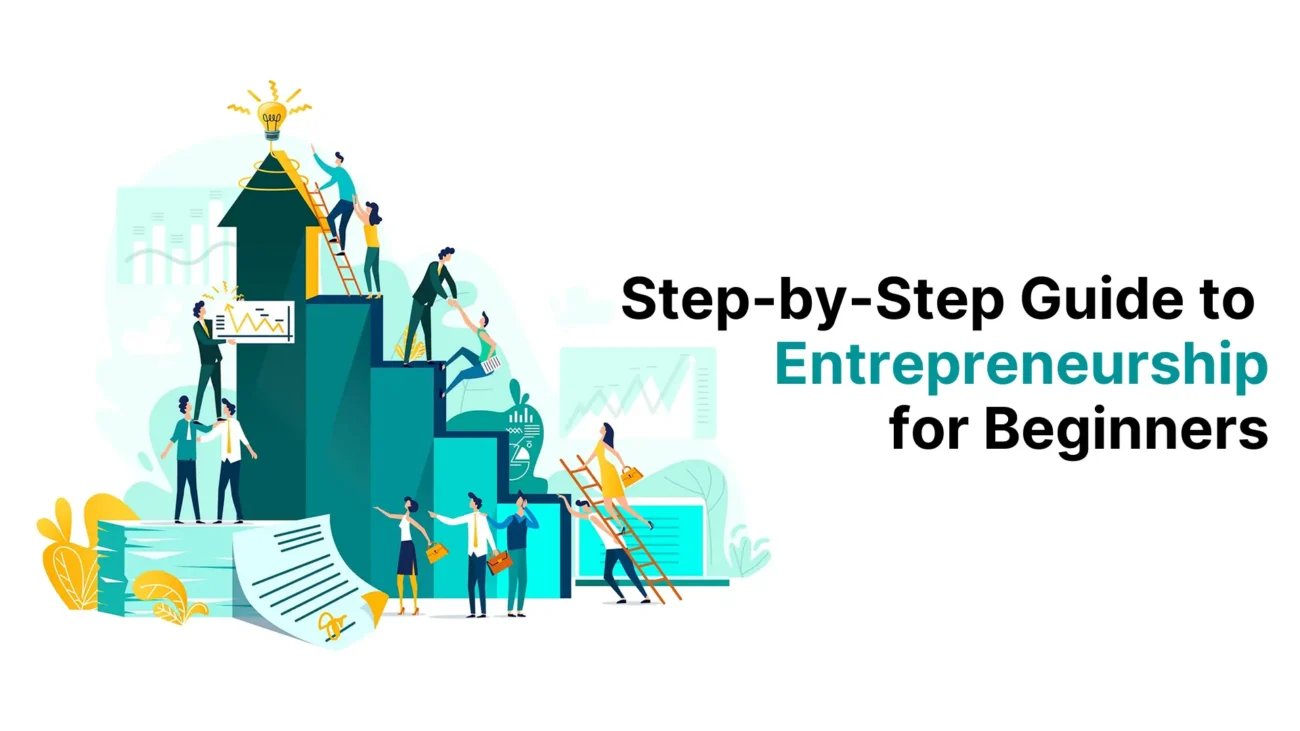Starting your own business can be one of the most exciting and rewarding journeys of your life. However, the path to becoming a successful entrepreneur is often filled with challenges, uncertainties, and learning curves. If you’re new to the business world, this step-by-step guide to entrepreneurship for beginners will help you build a solid foundation and avoid common pitfalls.
Whether you’re launching a small side hustle or aiming to build a scalable company, following these practical steps can put you on the path to sustainable success.
1. Understand What Entrepreneurship Involves
Before diving into the business world, it’s essential to understand what entrepreneurship for beginners really means. At its core, entrepreneurship is about identifying a need in the market and creating a solution through a business venture.
It involves risk-taking, innovation, and persistence. You must be prepared to wear many hats—product developer, marketer, financial planner, and more—especially in the early stages. Understanding this mindset is the first step to developing your entrepreneurial journey.
2. Identify a Profitable Business Idea
Every great business starts with a great idea. Look for a gap in the market, solve a problem, or offer a unique twist on existing products or services.
To succeed in entrepreneurship for beginners, research current trends, listen to customer pain points, and explore your passions and strengths. Tools like Google Trends, AnswerThePublic, and industry forums can help validate your idea.
Pro tip: Choose a niche where you can add real value and have a long-term interest—it will keep you motivated when challenges arise.
3. Conduct Market Research
Validating your business idea through thorough market research is essential. This involves understanding your target audience, identifying competitors, and assessing market demand.
Beginner entrepreneurs should ask:
- Who is my ideal customer?
- What problems do they face?
- What are my competitors doing right—and wrong?
Entrepreneurship for beginners requires data-driven decisions. Use surveys, focus groups, and online tools like Statista, SEMrush, and Ubersuggest to gather insights.
4. Write a Business Plan
Your business plan is the blueprint for your entrepreneurial success. It should outline your business goals, strategies, market analysis, financial projections, and operational plan.
A well-crafted business plan helps you stay focused and is often required when seeking funding or partnerships. For those exploring entrepreneurship for beginners, online templates can simplify the process and ensure you don’t miss critical sections.
5. Choose a Business Structure
One of the first legal steps in launching your business is choosing the right business structure. Common options include:
- Sole trader
- Partnership
- Limited liability company (LLC)
- Corporation
Each has its own advantages in terms of taxes, liability, and paperwork. Entrepreneurship for beginners often starts as a sole proprietorship due to its simplicity, but you may need to change as your business grows.
Consult with an accountant or business advisor to choose the structure that suits your goals and protects your assets.
6. Register Your Business and Get Licenses
Once you’ve chosen your business structure, register your business name and apply for any required permits or licenses. Depending on your industry and location, you may need specific approvals to operate legally.
This step ensures you meet legal and tax obligations—an essential part of entrepreneurship for beginners that should not be overlooked.
7. Set Up Your Finances
Open a separate business bank account to keep personal and business finances apart. Invest in basic accounting software like QuickBooks, Xero, or Wave to manage expenses, invoices, and taxes.
Budgeting is key in entrepreneurship for beginners. Create a financial plan that outlines your startup costs, monthly expenses, and expected revenue. Even if you’re starting small, tracking your cash flow from day one is crucial.
8. Build Your Brand and Online Presence
Branding isn’t just for big companies. Start by creating a business name, logo, and tagline that reflect your mission and appeal to your target audience.
Then, build your online presence with:
- A professional website
- Social media profiles
- Google Business Profile
- Business email and phone number
For entrepreneurship for beginners, platforms like Canva (for design), Wix or WordPress (for websites), and Mailchimp (for email marketing) offer easy-to-use solutions at low cost.
9. Market Your Business
You can’t grow a business without customers. Develop a simple marketing plan that includes both online and offline strategies such as:
- Social media marketing
- Content creation (blogs, videos, etc.)
- Email campaigns
- Paid ads (Google or Facebook)
- Local networking or events
Focus on providing value and building trust with your audience. Entrepreneurship for beginners thrives when you consistently engage and nurture customer relationships.
10. Launch and Learn
It’s time to go live! Don’t wait for everything to be perfect—start small, test your products or services, and gather feedback. Be ready to pivot based on customer needs and industry trends.
Remember, mistakes are part of the learning process. The key to successful entrepreneurship for beginners is to remain adaptable and open to change.
Use customer feedback, analytics, and performance data to improve continuously. Join communities, attend webinars, and seek mentorship to accelerate your learning.
Bonus Tips for Entrepreneurship for Beginners
- Stay legally compliant: Keep up with tax filings, employment laws, and data protection regulations.
- Build a support network: Join entrepreneur groups, connect with mentors, and don’t be afraid to ask for help.
- Invest in personal growth: Entrepreneurship demands self-discipline, resilience, and ongoing learning.
Final Thoughts: Your Journey Starts Today
Entrepreneurship for beginners may seem overwhelming, but with the right steps and mindset, anyone can become a successful business owner. Start small, stay consistent, and learn as you go.
By following this step-by-step guide, you’ll set yourself up for a rewarding entrepreneurial journey—one filled with growth, purpose, and the potential to change lives.
Keep learning, stay focused, and take action—your future as an entrepreneur starts today!


